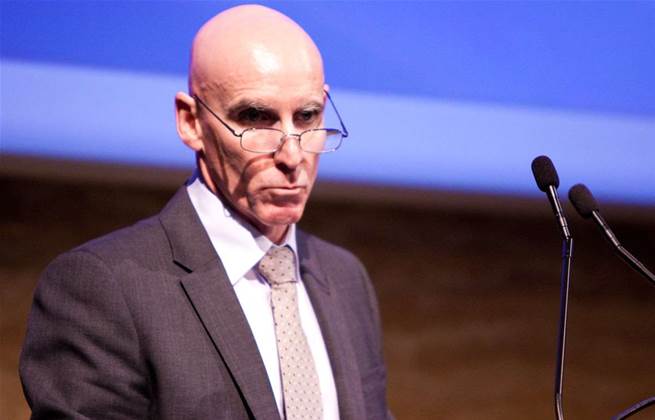As Optus itself noted almost a decade ago: "Building-out the HFC cable is not an economically viable option. Other broadband technologies are more economic, particularly DSL."

So, of the three fixed line infrastructure builds in Australia - two were great successes and were built by the public sector. This is why when it comes to telecoms infrastructure investment we should not accept the simplistic mantra of "private markets good, public investments bad".
I want to be clear at this point that except for the last 12 months, I have lived my professional life in the private sector in a large commercial telecoms company. I am a great believer in markets and the ability of competition to drive innovation.
But that does not mean that I believe there is no place for public sector investment in telecommunications infrastructure. In some cases it is the only way to make the big investments that are critical to our future prosperity.
No commercial entity will provide good telecommunications services to everyone across this vast nation of ours without Government intervention of one sort or another. No purely commercial company can take the long term view that is required to build the next fixed line platform that Australia now needs.
The Overland Telegraph that Charles Todd built using public funding lasted more than 50 years, the copper CAN that was built using public funds has now lasted more than 60 years. The fibre infrastructure on which the NBN is based, and which the Australian public is now in a position to build, will last for the next 50 years.
If you are an executive that has to face the pressures of quarterly earnings calls, it is simply not possible to put the long-term public good as your number one priority. You are paid to represent the shareholders interests.
But a publicly funded Telco such as NBN Co can take a very different view.
Our very "raison d'etre", in NBN Co, is to execute the Government's policy for broadbanding Australia in the most cost effective way possible - taking a long term view of the national interest.
And I would like to stress that we are a Telco. We are not a Government department.
We are a GBE that is staffed by experienced Telco professionals most of whom have joined the Company because they want to be part of this nation building project. So we have a publicly owned Telco which has been set up to build the next generation of wireline infrastructure for Australia - a fibre network which we can expect to last at least as long as the copper network.
So the question is, is it a good use of public financing to build the NBN?
I believe the answer to that question is yes. Not only because of the advantages that a national fibre network provides, but because it will simultaneously correct the industry structure problem which has limited the Australian telecom's landscape for more than a decade.
We probably all agree that separating wholesale and retail networks is a good thing.
Paul Fletcher in his book "Wired Brown Land" wrote what you see up on this slide: "My fundamental argument is that we need to get the market structure right first if we do that, the right technology will follow.
"A market structure in which there are multiple providers of retail telephony and broadband services - and they all operate over the same network on equal terms. For that to happen, none of them must own or control the network. Instead, they must buy services from the owner of the network' and in turn the network owner must be restricted to selling services in the wholesale market rather than the retail market."
I think Paul absolutely nailed it with these words, arguing for a single national wholesale only provider. But I understand why people ask the question - "How is it that a Government controlled monopoly can improve competition?"
The wholesale network should be a monopoly, because to build duplicate access networks makes little sense. To build a collection of disparate access networks would be almost as bad.
So who should own the wholesale network? If it is in private hands, you would expect the management of the wholesale company to strive to maximise shareholders returns. We should not expect national interests, including the guarantee of good service to rural and remote communities, to be top of the priority list.
My view after spending 36 years in the telecoms industry, and having observed at close quarters access models all around the world, is that an efficiently run, publicly owned, wholesale Telco whose objectives are to maximise the public interest, is a good solution.





_(20).jpg&h=140&w=231&c=1&s=0)





 iTnews Executive Retreat - Security Leaders Edition
iTnews Executive Retreat - Security Leaders Edition
 iTnews Cloud Covered Breakfast Summit
iTnews Cloud Covered Breakfast Summit
 Melbourne Cloud & Datacenter Convention 2026
Melbourne Cloud & Datacenter Convention 2026
 The 2026 iAwards
The 2026 iAwards











_(1).jpg&h=140&w=231&c=1&s=0)



